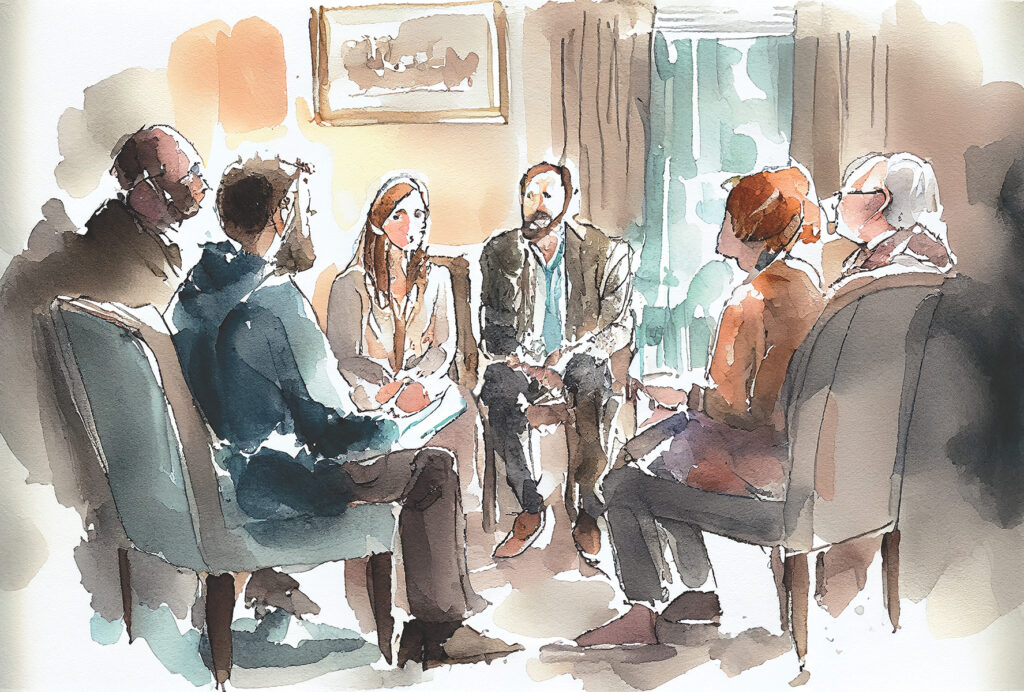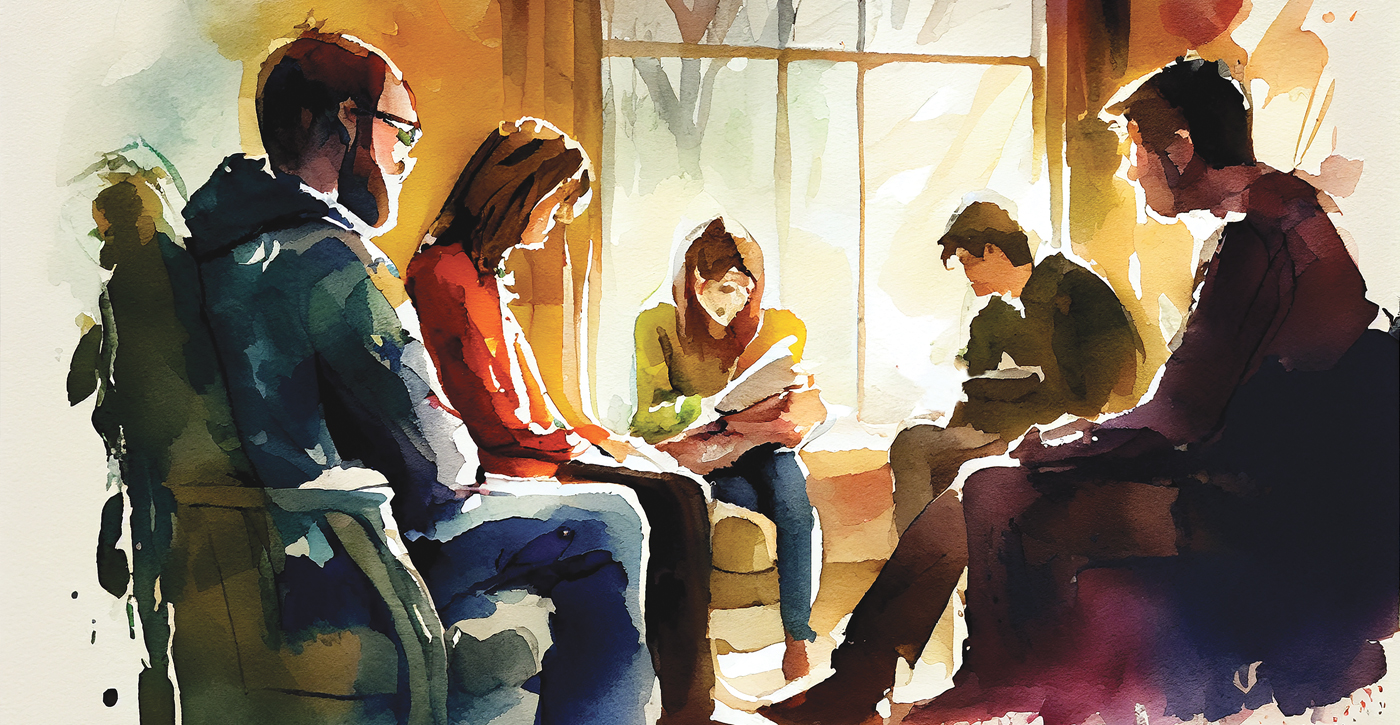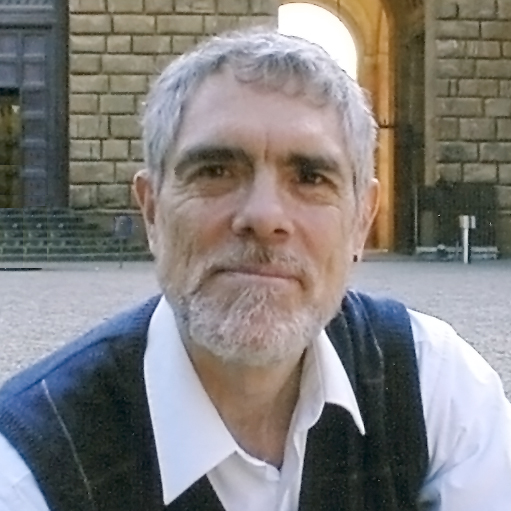On Being Led by the Spirit
For Friends, true leadership comes from the Holy Spirit. True authority for leadership rests in the Spirit, not in the leader. Thus true leadership is, in fact, true followership: a willingness to follow the Spirit’s leading into some service.
Thus leadership grows out of Quaker spirituality, trying to live our lives under the guidance of the Light within us. It embodies the spiritual practices of attuning our spiritual antennae to the Divine signal, learning to tell when the signal really is of the Spirit and where It’s trying to lead us, and then disciplining ourselves to follow Its lead.
Leadership then is a manifestation of continuing revelation. We have been given something new to say or do that reveals God’s wish for us and for the world.
The vehicle for leading others, then, is ministry. Ministers are those Friends who are attuned to Spirit’s guidance; possess gifts of discernment; and have a commitment to humble, even sacrificial, service. We embody this spirituality in the very language we use to describe ministry’s direction. A “leading” is something we have been directed to do by the Holy Spirit.
The delivery mechanism for Spirit-led leadership is vocal ministry’s direction to a course of action: speaking what one has been given to say while doing what one has been called to do. Because such leadership will always involve vocal ministry—even when it doesn’t entail action— Spirit-led eldership of vocal ministry is essential for faithful leadership in the meeting.
In practical terms, Quaker leadership very often takes place in vocal ministry given in meeting for worship for business. So it’s important for the business meeting to be conducted as a meeting for worship and for participants’ contributions to be treated—by speakers and listeners alike—as vocal ministry. The same is also true in our committee meetings, which often serve as incubators for leadings, leaders, and followers.
Leadership openings also come, of course, in our weekly meetings for worship. It follows then that meeting for worship is like a laboratory in which we learn, practice, and support the practices of listening, discerning, and answering, and that we do this both as individual ministers and as a community.
Because leadership is a spiritual practice, its exercise needs spiritual support from the community. To enable good leaders, we need religious education in the faith and practice of listening and ministry. We need to view proactive nurture of vocal ministry as the primary pathway of bringing forth leaders in our meetings. Leadership needs a robust infrastructure for the care of leadings and to support discernment and ministry.
Because we humans are the vehicle for the leadership of the Spirit, and because most of us are not by nature very good at this spirituality, either as leaders or as followers, we have to work at it. We have to learn it, and therefore, we have to teach and model it.

Meanwhile, Liberal Friends, by and large, have become rather allergic to leadership. We sometimes turn on our leaders. Why?
Liberal Quakerism began, in part, as a reaction to the excesses of evangelicalism that dominated many Quaker communities in the nineteenth century. In many quarters, we had invested a lot of authority in elders and hierarchical church controls, in a virtually creedal enforcement of narrow and rigid interpretation of Scripture, and in Scripture itself. In the process of reclaiming the primary authority of the Spirit, Liberal Friends increasingly, and naturally, claimed primary authority for the individual over and against these constraints on personal freedom.
However, I think the most significant undermining of Quaker leadership occurred with the deconstruction of the culture of eldership, when we laid down the practice of recording ministers and elders. We had good reason to do this: the practice of eldership had become part of the problem. But abandoning the infrastructure for the support of ministry brought a new mindset regarding discipline. In practice, we increasingly left our ministers (meaning vocal ministers) to their own devices. Gradually, in the ensuing century, Friends stopped feeling a life calling to vocal ministry, and instead saw ministry as an episodic experience of being prompted in the moment, rather than as an instance of a continuing prophetic call.
Meanwhile meetings have left the responsibility for nurturing new ministers and for supporting mature ministers in their calling to our committees for worship and ministry. These committees have—at least in my experience of the last 35 years—often found themselves unable to actively and proactively nurture and support the vocal ministry for a variety of reasons. They may be unsure about their authority or the meeting’s support, as well as unclear about where the boundaries lie between action and intrusion. In my experience, there has always been someone on the committee who is so uncomfortable with engaging others on the meeting’s vocal ministry that the committee cannot find unity and is thus paralyzed: able to act only, if at all, in the most egregious situations. Furthermore, this discomfort with active—and especially proactive— eldership of vocal ministry is always shared by some percentage of the membership. This latent discomfort in the meeting, now an embedded aspect of our culture, then surfaces as resistance to any leadings to leadership.
Because leadership is a spiritual practice, its exercise needs spiritual support from the community. To enable good leaders, we need religious education in the faith and practice of listening and ministry.
To theoretically embrace the Holy Spirit as the only true authority and not actually exercise that responsibility is a concern for both the faith and the practice of the meeting. Over time, it has meant that we have come to invest authority in the individual, in each of ourselves. The emergence of a belief in “that of God in everyone” as a kind of divine spark has reinforced this sense of ourselves as the real source of divine authority. When we claim ourselves as the source of divine authority—what some have called ego-theism—it’s natural to resist someone whose words and actions have an authority that seems to extend beyond themselves and over the meeting or over ourselves.
We have come to believe that the Spirit that really matters is already within us. Furthermore, “the Spirit” that we often speak of with a more trans-personal meaning is so vaguely defined and understood as to be irrelevant as an authority; never mind there being an actual divine authority, such as Jesus Christ, to whom we might be disciples in our discipline.
We make excuses for our resistance to Friends who assume leadership among us by invoking the same tropes with which we resist any active eldering approach to vocal ministry, namely the “testimony of equality” and a superficial understanding of Quaker ministry. We use the idea that we are all equal to deny the reality that we are each given different spiritual gifts and in different measures. We use the idea that we are all ministers to resist the possibility that the Spirit might single someone out for a particular role of leadership. In reality, we are not all ministers; we are ministers only when we have been called to service and we have answered the call. That is, we become ministers when we learn to follow.
Spirit-led following is the key to Spirit-led leadership. True following is for us a sacrament, the outward embodiment of an inwardly received grace. It is to embrace the revelation that the Holy Spirit has given us and the new direction that God is showing us through leaders the Spirit has raised up.
The spirituality of following is the same as it is for leading. It is a spirituality of listening, discerning, and humble following. Just as the Spirit-led leader must listen for God’s guidance, so we followers must also be open to that guidance. Just as the leader must discern whether the guidance really is of God, so we followers must test the leader’s leading. Just as the Spirit-led leader must surrender their will to the calling—even if it means some sacrifice—so we true followers must humble ourselves and follow the leading, even if it means some sacrifice of self and will, let alone some cultural discomfort.
It is the leading that matters, not the leader. It is the Spirit that matters, not the person. It is the service that matters, and we are all servants, leaders and followers alike, when we answer the call. Leading and following alike are a spiritual practice of the most essential sort in the Quaker tradition.
For individual Friends, living a Spirit-led life means following the lead of the Holy Spirit. Sometimes that manifests in callings to leadership, which is really just following that Spirit.
For Quaker meetings, our corporate spirituality as a gathered people of God means following the leadings of the Spirit: in meeting for worship; in meeting for worship for business; in our committees; and in all our work together. That revelation can only manifest through humans called to the service; it can only manifest through ministers who are listening and discerning. And it requires listening and discerning followers.







Comments on Friendsjournal.org may be used in the Forum of the print magazine and may be edited for length and clarity.